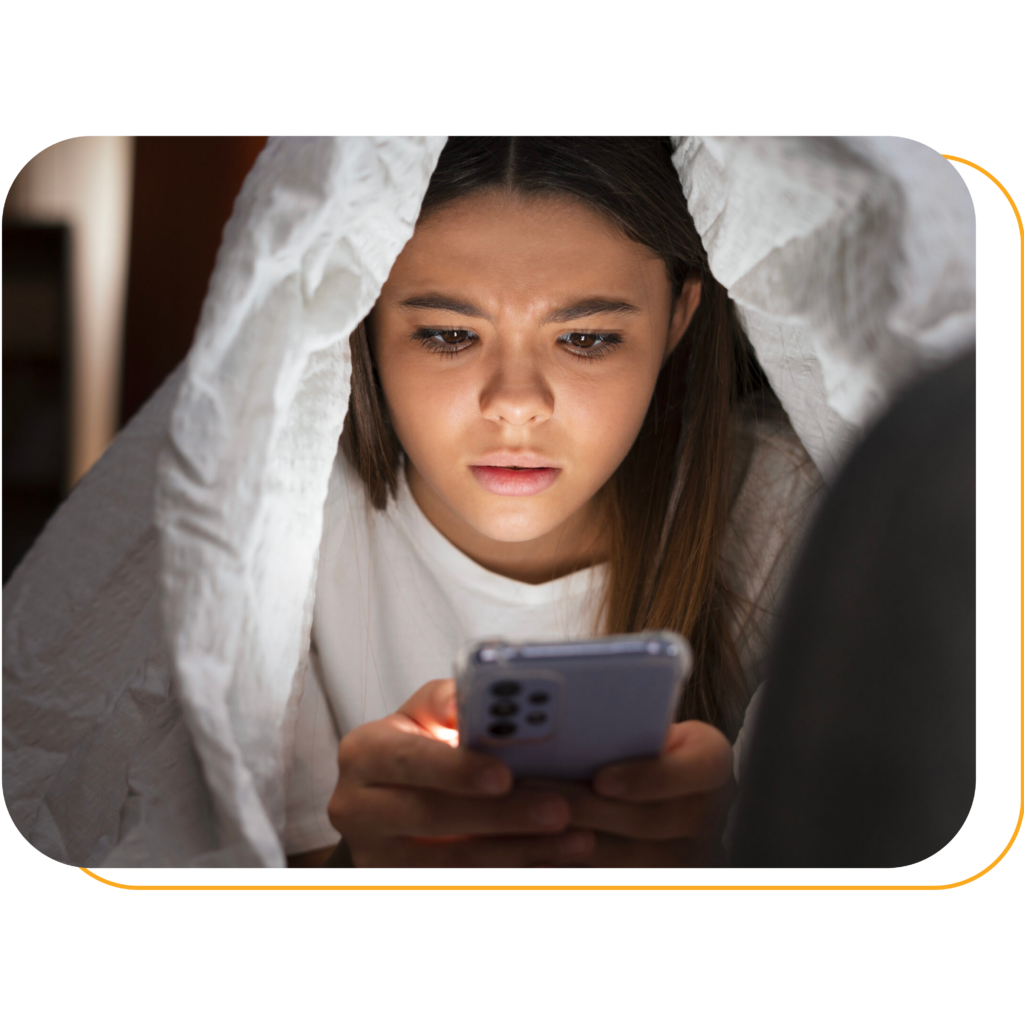In today’s digital age, smartphones, social media, and endless online content have become an integral part of our lives. While tech offers numerous benefits, the excessive screen time can lead to digital overuse.
Being a teen in today’s digital age is exciting – you’ve basically got the world at your fingertips thanks to smartphones, social media, and endless online content. But here’s the deal – while tech offers incredible opportunities to connect, it can also lead to digital addiction and mess up our lives in big ways. If you feel like you’re experiencing some problems getting off the phones, stopping the games, or looking away from social media, check out some of these tips to gain back some control.
Set Boundaries
Here it’s about finding that balance between screen time and the rest of your life. It’s not about giving up your devices but making sure that they don’t take over your time. Start by allocating specific times of the day for tech use, like after your schoolwork is done or after you eat dinner. Set screen-free zones like at the dining table or your bed. These rules can help you manage your tech habits better. Stick to them as consistently as you can!
Unplug
Make the real world just as fun or interesting as the online one. Pick up new hobbies like playing an instrument, joining a sports team, practising art, or volunteering at an animal shelter. When you engage in offline activities, you’ll find that not only are you reducing screen time but also adding richness to your life experiences.
Know your Triggers
Understanding what pushes you towards screens is crucial. Oftentimes, we reach for our devices when we’re bored, stressed, or feeling anxious. Recognising these triggers will help prevent such habits from forming and help us find alternative ways to cope. For example, if you’re bored, consider carrying a book or journal with you to doodle or write. If stress leads to screen time, find friends instead, practice deep breathing or do mindfulness exercises.
Seek Help
Understanding what pushes you towards screens is crucial. Oftentimes, we reach for our devices when we’re bored, stressed, or feeling anxious. Recognising these triggers will help prevent such habits from forming and help us find alternative ways to cope. For example, if you’re bored, consider carrying a book or journal with you to doodle or write. If stress leads to screen time, find friends instead, practice deep breathing or do mindfulness exercises.
Remember, the goal isn’t to get rid of screens from your life but to find a healthy balance to make the most of both your online and offline world. Digital addiction is a real issue but there are people and resources out there ready and willing to help you find that balance!

Jowena Cheng
Trainee Counsellor/Behaviour Therapist
About the author Jowena:
Jowena has rich bicultural experience having grown up in the United States for over 16 years before moving back to Singapore permanently in 2014. Her professional experience expands over seven years and includes work as a behavioural therapist, associate psychologist, and assistant manager at a private counselling centre. She has worked with children, adolescents, and young adults from a variety of populations ranging from special needs to prison services.





